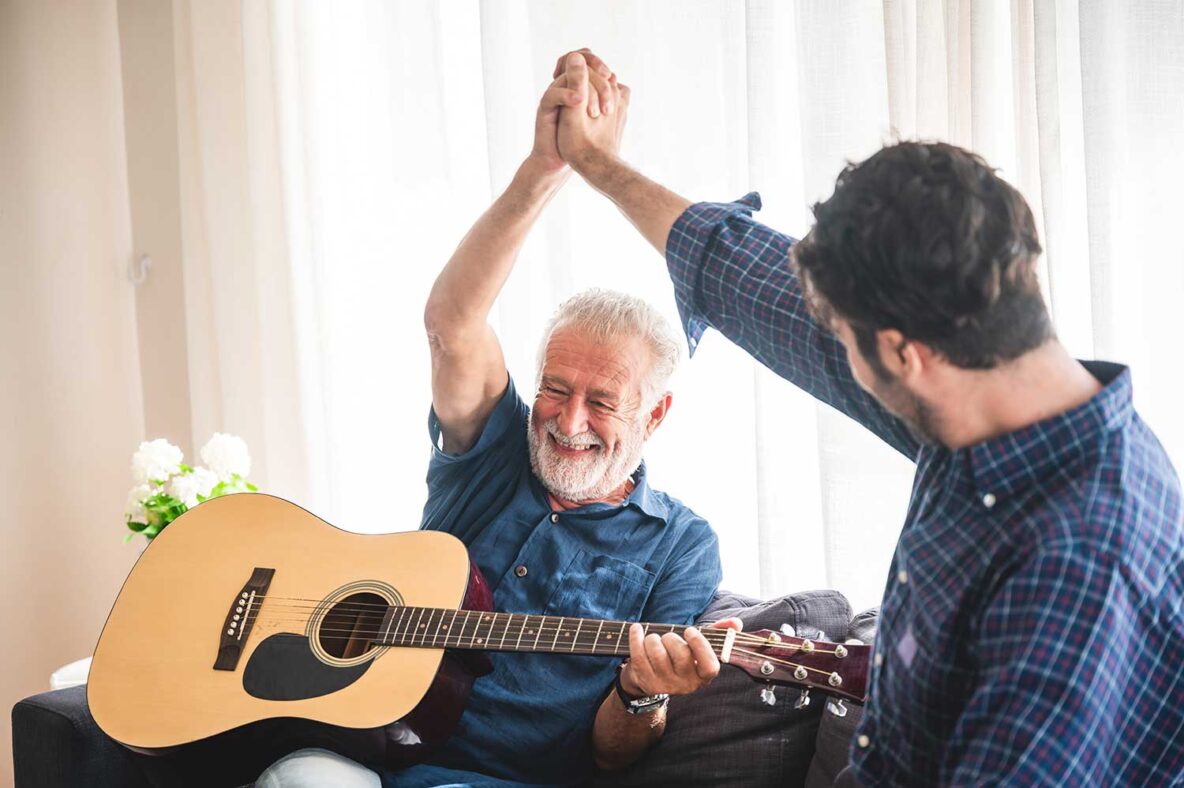There are lots of misconceptions about aging but the myth that older people struggle to learn new things is a belief that can really hold people back.
The science is clear: senior adults CAN learn new things. One study found that when senior adults learn new skills it expands their cognitive abilities in the same way it does for children.
Continual learning can reduce the risk of cognitive decline. It can help your brain generate new neurons (the cells that send information to your entire body) and create new neuron connections. Lifelong learning enhances self-esteem while giving you a sense of purpose and hope and feelings of competency.
What is lifelong learning?
Lifelong learning is the active pursuit of education that extends far beyond school and into adulthood and retirement. Adopting a philosophy of lifelong learning has many benefits. It can expand your social circle, encourage critical thinking and independence as well as strengthen your connection to the world around you.
Examples of Lifelong Learning
- Developing a new hobby or skill
- Learning to play a new game or puzzle
- Adopting new technology
- Attending a lecture, class, or demonstration
- Reading non-fiction
- Learning about the world through exploration, travel, documentaries, and books
- Researching genealogy
- Creating art, music, or poetry
- Learning more about your faith
- Listening to educational podcasts or watching an informative TV series
- Volunteering
- Learning more about yourself through personal development or therapy
- Sewing, crafts, and handiwork
- Singing in a choir or playing an instrument
- Learning a new language
- Taking a walk in nature
- Yoga and meditation
- Physical activity and group exercise classes
How to Make Lifelong Learning Work For You
- Do something you like. Don’t pick an activity just because you should. Enjoying what you’re doing will help you stick with it over time, even when it’s very challenging.
- Add people. The social aspects of learning something new can motivate you to keep doing it and it’s a great way to stay engaged with others. Invite someone to learn a new skill, try a new game, or attend a class with you.
- Keep it simple. You can’t pursue something that doesn’t fit into your schedule or lifestyle. Choose things that are easy to add to your life.
- Study an interesting subject. Have you always been curious about the Titanic or World War II? Have you always wanted to try painting? Finding subjects you want to learn about makes any challenge more enjoyable.
- Combine mental and physical engagement. ZumbaGold, yoga, pickleball, Tai Chi – learning a new physical skill can boost your brain health and can boost strength and flexibility.
Lifelong Learning at Senior Star Communities
At Senior Star we want to partner with our residents on their journey of lifelong learning. That’s why our communities offer a wide variety of opportunities for residents to challenge their minds and bodies. From book clubs and cultural excursions to Dakim® BrainFitness and game nights, our Signature Programs and special events are designed to promote intellectual wellness. In our Memory Care communities, our innovative programming, multi-sensory environments and Destination Stations are designed to give residents a variety of ways to stay energized and engaged.
Contact us to learn more about your community’s programming and initiatives.

